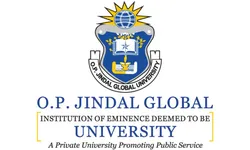
International Relations Theory: Liberalism 
This course offers a comprehensive introduction to International Relations Theory: Liberalism. It provides an in-depth knowledge and understanding of key liberalist thinkers, theories and concepts, including real world examples and tips for writing essays and dissertations. Through this course, you will gain the confidence to think and speak about world problems through the lens of the oldest and highly influential progressive theory of International Relations. It covers classical liberalist thinkers, 20th century classical liberalist International Relations theory, neoliberal intergovernmentalism, liberalism since the 1990s, and three case studies of how liberalism can be applied to analyse real world problems. With the 30-day 100% money back guarantee, this course is an ideal way to gain a comprehensive understanding of International Relations Theory: Liberalism. ▼
ADVERTISEMENT
Course Feature
![]() Cost:
Cost:
Paid
![]() Provider:
Provider:
Udemy
![]() Certificate:
Certificate:
Paid Certification
![]() Language:
Language:
English
![]() Start Date:
Start Date:
2021-01-04
Course Overview
❗The content presented here is sourced directly from Udemy platform. For comprehensive course details, including enrollment information, simply click on the 'Go to class' link on our website.
Updated in [August 13th, 2023]
Skills and Knowledge Acquired:
By taking this course, you will acquire in-depth knowledge and understanding of key liberalist thinkers, theories and concepts, including real world examples and tips for writing essays and dissertations. You will gain confidence to think and speak about world problems through the lens of the oldest and highly influential progressive theory of International Relations. You will learn to identify and understand the ideas of the founders of liberalism, including John Locke, David Hume, Hugo Grotius and Immanuel Kant. You will become an expert on modern liberalist thinkers, including Norman Angell, Woodrow Wilson, Robert Keohane, Joseph Nye, Francis Fukuyama. You will understand the differences between classical liberalism and neoliberalism, as well as the differences between neoliberalism and neorealism. You will also gain knowledge of the liberal principle of human rights, international law, Norman Angell's Nobel Peace Prize-winning work, Woodrow Wilson's importance to the liberal International Relations theory, Robert Keohane's neoliberal programme, absolute and relative gains, Fukuyama's 'end of history' proclamation, international regimes, Joseph Nye's concepts of soft power and smart power, democratic peace theory, the liberalist perspective on European integration and the European Union, the United Nations, and the Responsibility to Protect (R2P). Additionally, you will learn 6 practical tips for incorporating liberalism into your academic essays and dissertations.
Contribution to Professional Growth:
This course contributes to professional growth by providing in-depth knowledge and understanding of key liberalist thinkers, theories and concepts, including real world examples and even tips for writing essays and dissertations. It gives students the confidence to think and speak about world problems through the lens of the oldest and highly influential progressive theory of International Relations. It also provides practical tips for incorporating liberalism into academic essays and dissertations. By taking this course, students will gain a comprehensive understanding of the most exciting progressive theory of International Relations, as well as the ability to apply it to real world problems.
Suitability for Further Education:
This course is suitable for preparing further education in International Relations Theory: Liberalism. It provides in-depth knowledge and understanding of key liberalist thinkers, theories and concepts, including real world examples and tips for writing essays and dissertations. It also offers a comprehensive overview of classical liberalist thinkers, 20th century classical liberalist International Relations theory, neoliberal intergovernmentalism, liberalism since the 1990s, and three case studies of how liberalism can be applied to analyse real world problems. The course is designed to help students improve the depth and breadth of their knowledge and understanding of how the world works, and is presented in a highly-accessible and engaging way, designed specifically for those without prior university degree in Politics or International Relations.
Course Syllabus
Introduction to the Course
Locke and Hume: The Foundations of Liberalism
Grotius: International Law
Kant: International Peace
Angell and Wilson: International Institutions
Keohane and Nye: Neoliberal institutionalism
Modern liberalism in International Relations
Liberalism and Contemporary World Politics
Bonus: Essays and Dissertations
Bonus: Discount Coupons
Course Provider

Provider Udemy's Stats at AZClass
Discussion and Reviews
0.0 (Based on 0 reviews)
Explore Similar Online Courses

Understanding of US-Russia relations in the Asia-Pacific

Online International Diplomacy and Protocol Masterclass

Python for Informatics: Exploring Information

Social Network Analysis

Introduction to Systematic Review and Meta-Analysis

The Analytics Edge

DCO042 - Python For Informatics

Causal Diagrams: Draw Your Assumptions Before Your Conclusions

Whole genome sequencing of bacterial genomes - tools and applications

International Relations 1815-1914

From International Relations to Global Politics


Start your review of International Relations Theory: Liberalism